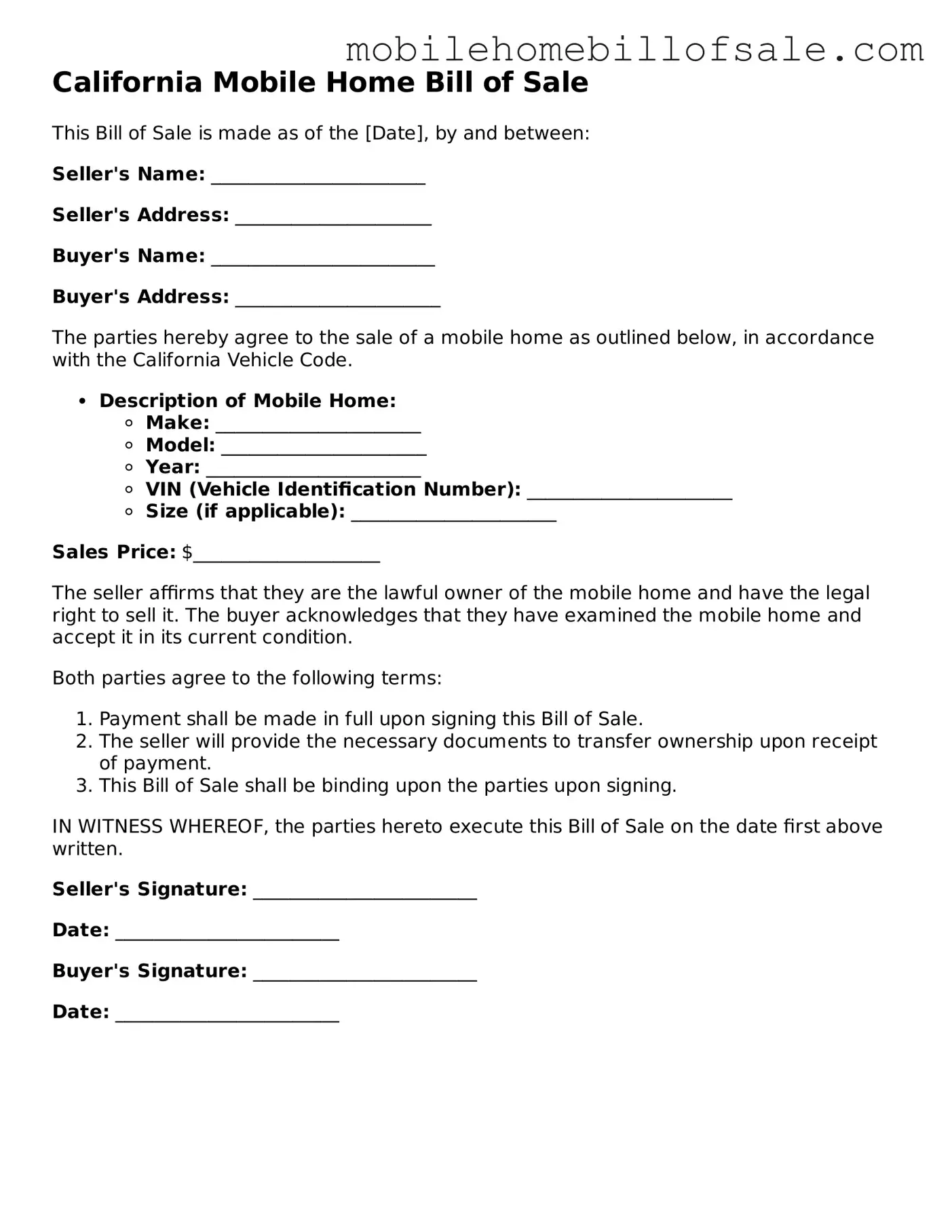Blank California Mobile Home Bill of Sale Document
The California Mobile Home Bill of Sale form is a legal document used to transfer ownership of a mobile home from one party to another. This form outlines essential details, such as the buyer and seller's information, the mobile home's specifications, and the agreed purchase price. Understanding this document is crucial for ensuring a smooth transaction and protecting both parties' interests.
Open My Mobile Home Bill of Sale

Blank California Mobile Home Bill of Sale Document
Open My Mobile Home Bill of Sale
Don’t forget to finish your form
Complete Mobile Home Bill of Sale digitally — fast and easy.
Open My Mobile Home Bill of Sale
or
Click for Mobile Home Bill of Sale
